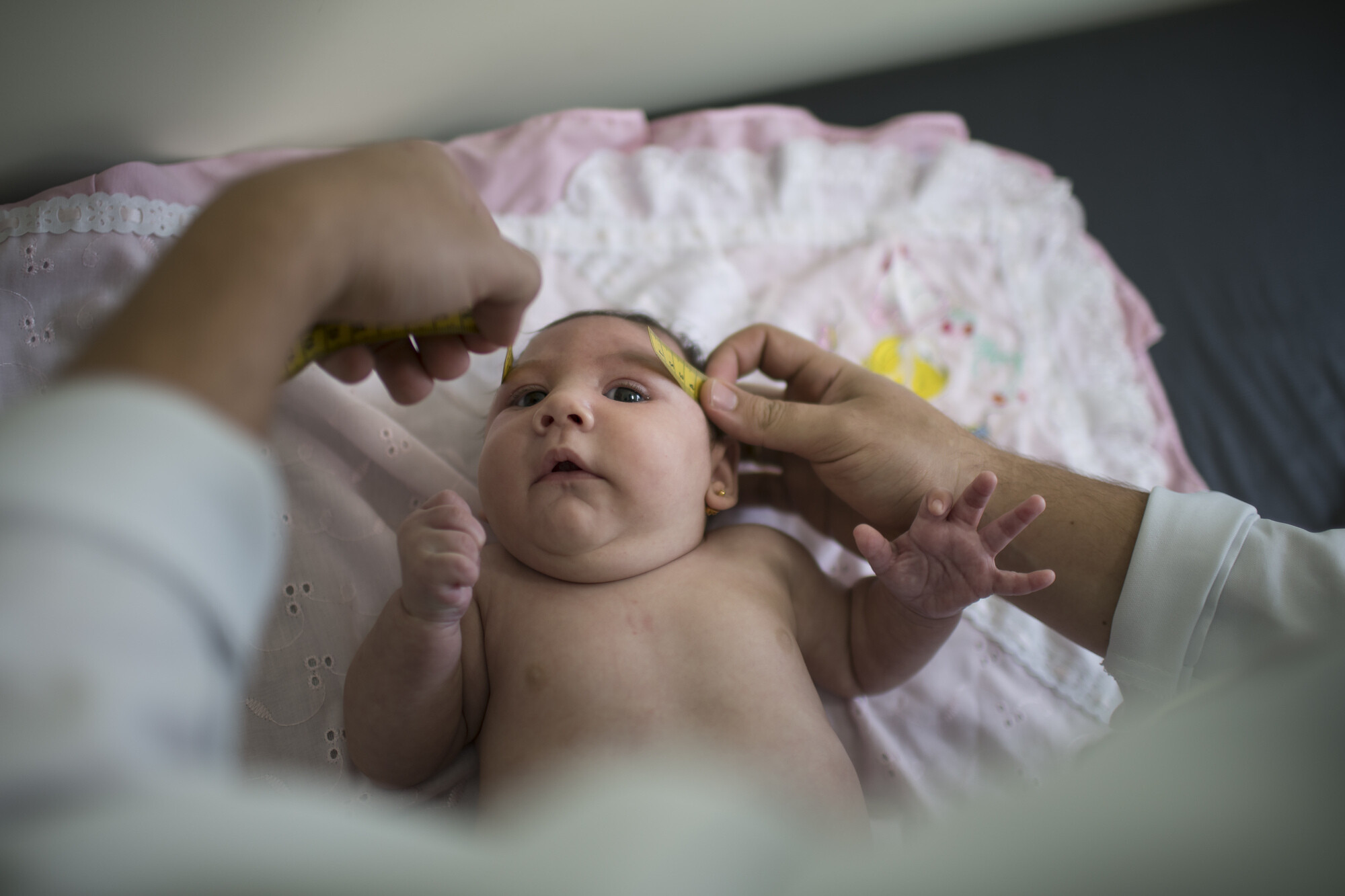
Micrencephaly Olivopontocerebellar Hypoplasia might sound like a mouthful, but understanding it can be simpler than you think. This rare neurological condition affects brain development, leading to smaller brain size and underdeveloped regions like the cerebellum and brainstem. Symptoms often include developmental delays, motor skill challenges, and sometimes seizures. While it’s a complex disorder, knowing the facts can help demystify it. This post will break down 30 key facts about Micrencephaly Olivopontocerebellar Hypoplasia, making it easier to grasp. Whether you're a curious student, a concerned parent, or just someone interested in medical conditions, these facts will provide valuable insights.
Key Takeaways:
- Micrencephaly Olivopontocerebellar Hypoplasia (MOPCH) is a rare genetic disorder causing small brain size and underdeveloped brain regions, leading to severe developmental delays and motor dysfunction.
- While there is no cure for MOPCH, treatments like physical therapy, speech therapy, and nutritional support can help manage symptoms and improve quality of life. Ongoing research aims to develop more effective treatments.
What is Micrencephaly Olivopontocerebellar Hypoplasia?
Micrencephaly Olivopontocerebellar Hypoplasia (MOPCH) is a rare genetic disorder affecting brain development. It combines micrencephaly, a condition where the brain is smaller than normal, with olivopontocerebellar hypoplasia, which involves underdevelopment of specific brain regions.
-
Micrencephaly means "small brain." It results in a brain size significantly below average for the individual's age and sex.
-
Olivopontocerebellar Hypoplasia involves the underdevelopment of the olives, pons, and cerebellum in the brain. These areas are crucial for motor control and coordination.
-
MOPCH is a genetic disorder, often inherited in an autosomal recessive manner. This means both parents must carry a copy of the mutated gene.
-
Symptoms of MOPCH can vary but often include severe developmental delays, intellectual disability, and motor dysfunction.
Causes and Diagnosis
Understanding the causes and how MOPCH is diagnosed can help in managing the condition better.
-
Genetic mutations in specific genes, such as RARS2, are known to cause MOPCH. These genes are involved in protein synthesis and brain development.
-
Prenatal diagnosis is possible through genetic testing if there's a known family history of the disorder.
-
MRI scans are crucial for diagnosing MOPCH. They reveal the underdeveloped brain regions characteristic of the condition.
-
Clinical evaluation by a neurologist can help identify the symptoms and severity of MOPCH.
Symptoms and Complications
MOPCH presents a range of symptoms and potential complications that affect the quality of life.
-
Microcephaly is a common symptom, where the head circumference is smaller than normal.
-
Seizures are frequent in individuals with MOPCH, requiring ongoing medical management.
-
Muscle weakness and poor coordination are typical due to the underdeveloped cerebellum.
-
Feeding difficulties often arise, sometimes necessitating feeding tubes.
-
Respiratory issues can occur, requiring respiratory support in severe cases.
Treatment and Management
While there's no cure for MOPCH, various treatments can help manage symptoms and improve quality of life.
-
Physical therapy can aid in improving motor skills and muscle strength.
-
Occupational therapy helps individuals develop daily living skills.
-
Speech therapy is beneficial for those with communication difficulties.
-
Anticonvulsant medications are used to control seizures.
-
Nutritional support is essential, especially for those with feeding difficulties.
Prognosis and Life Expectancy
The prognosis for individuals with MOPCH varies widely based on the severity of symptoms and complications.
-
Life expectancy can be reduced in severe cases due to complications like respiratory issues and infections.
-
Quality of life can be improved with early intervention and comprehensive care.
-
Supportive care from a multidisciplinary team is crucial for managing the condition effectively.
Research and Future Directions
Ongoing research aims to better understand MOPCH and develop more effective treatments.
-
Genetic research is exploring the specific mutations and mechanisms involved in MOPCH.
-
Clinical trials are investigating new therapies and interventions to manage symptoms.
-
Stem cell research holds potential for future treatments by possibly repairing or replacing damaged brain cells.
-
International collaborations among researchers are essential for advancing knowledge and treatment options.
Support and Resources
Families and individuals affected by MOPCH can benefit from various support resources.
-
Support groups provide emotional and practical support for families dealing with MOPCH.
-
Educational resources help families understand the condition and navigate care options.
-
Financial assistance programs can help cover the costs of medical care and therapies.
-
Advocacy organizations work to raise awareness and funding for research on rare genetic disorders like MOPCH.
-
Online communities offer a platform for sharing experiences and advice among those affected by MOPCH.
Final Thoughts on Micrencephaly Olivopontocerebellar Hypoplasia
Micrencephaly Olivopontocerebellar Hypoplasia (MOPCH) is a rare genetic disorder affecting brain development. Understanding its complexities helps in raising awareness and supporting affected families. MOPCH impacts motor skills, cognitive functions, and overall quality of life. Early diagnosis and intervention can improve outcomes, though there's no cure yet.
Research continues to uncover more about this condition, offering hope for future treatments. Families dealing with MOPCH need a strong support system and access to specialized care. Sharing knowledge about MOPCH can lead to better resources and understanding.
By learning about MOPCH, we contribute to a more informed and compassionate community. Every bit of awareness counts in making a difference for those affected by this challenging condition. Let's keep the conversation going and support ongoing research efforts.
Frequently Asked Questions
Was this page helpful?
Our commitment to delivering trustworthy and engaging content is at the heart of what we do. Each fact on our site is contributed by real users like you, bringing a wealth of diverse insights and information. To ensure the highest standards of accuracy and reliability, our dedicated editors meticulously review each submission. This process guarantees that the facts we share are not only fascinating but also credible. Trust in our commitment to quality and authenticity as you explore and learn with us.
